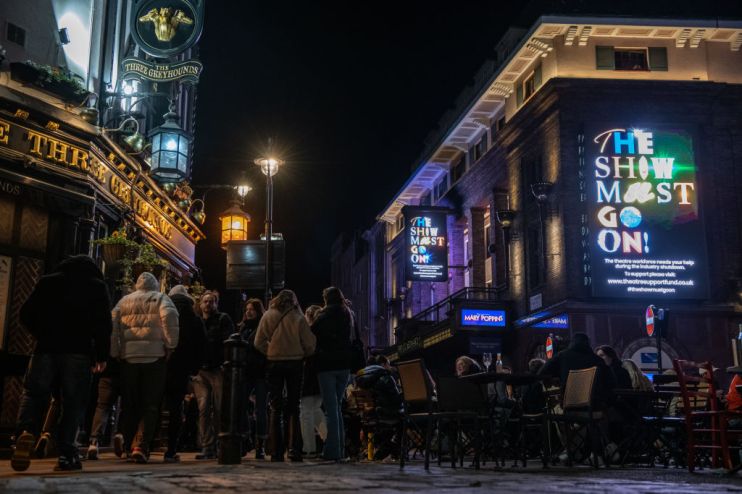Boris Johnson must follow his own ‘data not dates’ advice and reopen the economy faster

As few will need reminding, this week marks a crucial milestone for our hospitality sector and our social lives as beer gardens, high streets and outdoor areas open to customers once more. It is uplifting to see our city opening up again, as revellers this week in Soho, London Bridge and Clapham Common will testify.
Of course, the UK should raise a glass to this achievement. Thanks to the Government’s Herculean efforts to roll out the vaccine, we are within touching distance of herd immunity, with over 32 million people having received their first dose. In the next week, it’s predicted that 24 million people – half of England’s adult population – will go out to drink or shop. Contrast this progress to our European neighbours, who have once again been forced to tighten lockdown restrictions, and the picture looks comparatively rosy.
But, given the phenomenal success of our vaccine programme, is there any reason we cannot open up hospitality in London fully and faster?
The reality is that our pubs, restaurants and cafes are up against as many challenges today as they were last week, and only a full reopening will allow them and the rest of the city to get back on their feet. The Government has said repeatedly that the lockdown measures would be driven by data, not dates – yet, unrevised, our roadmap out of lockdown speaks to the contrary, at least for hospitality.
First, there is only so much to be gained from reopening outdoors, at great expense, for 5 weeks only. Even while hospitality CEOs have told me they’re excited about this next phase of the roadmap, the preparation costs have been huge, and will see only limited returns until they can open indoors and ditch the rule of six. Restocking supplies and setting up the outdoor areas needed to welcome back customers has racked up bills of as much as £25,000. That massive bill comes after five months of zero footfall. That’s before any of these businesses have even begun to try to repay their emergency Covid-19 loans, with no guarantee that they’ll make up the expense.
Even then, we’re only talking about the hospitality businesses that do have enough outdoor space to attempt to recoup lost time and income – under a third of all licensed pubs and restaurants have that luxury, of which pubs make up the lion’s share. With almost all of the over-50s now vaccinated, there seems little justification for prolonging these pains, least of all when consumers are hungry to go out and spend, and when London’s ailing cultural scene relies on hospitality recovering.
Reopening fully, faster would also help ease hospitality’s staff shortage, a hidden problem to industry outsiders, as ironic as this might seem at the height of an unemployment crisis. EU migrants make up 12-24 per cent of the UK’s hospitality labour force, and the majority of it in London and other cities. Most of these employees are on furlough and have returned to their home countries for lockdown. Without them, pubs, restaurants and cafes will struggle to get the headcount they need to resume business. As I’ve heard from many business owners, a partial reopening is unlikely to tempt these people back.
Turning to one of the demographics hardest hit by the pandemic, I can think of yet another reason for bringing forward the full reopening – students. According to the ONS, almost two thirds have had worse mental health since the start of the 2020 Autumn Term, and their satisfaction with life is still well below the average adult population’s. No wonder – they’ve been cooped up in student accommodation or at home with Mum and Dad for the past year. They’ve missed Freshers Week, sport and societies, and most of their in person teaching, all in the knowledge that they will probably bear the economic brunt of this pandemic long into the future.
Reopening in earnest would mean students can at least enjoy end of term celebrations, as well as begin to seek summer work. Students would benefit hugely from being able to work in hospitality in a way that fits in with their schedules, at the same time giving permanent employees a helping hand. Since 2018, Stint has facilitated 45,000 short work shifts for students at over 1,000 businesses, including during the pandemic, and they’ve been proven to boost staff happiness and business profitability. Not only that, but connecting students to hospitality shifts nationwide could help save more than 30,000 jobs in the sector, our estimates show.
Our hospitality businesses and our students are crying out for reopening faster, and our vaccination figures support this. Getting customers back through those doors is central to London bouncing back quickly. It’s time to let the data speak.